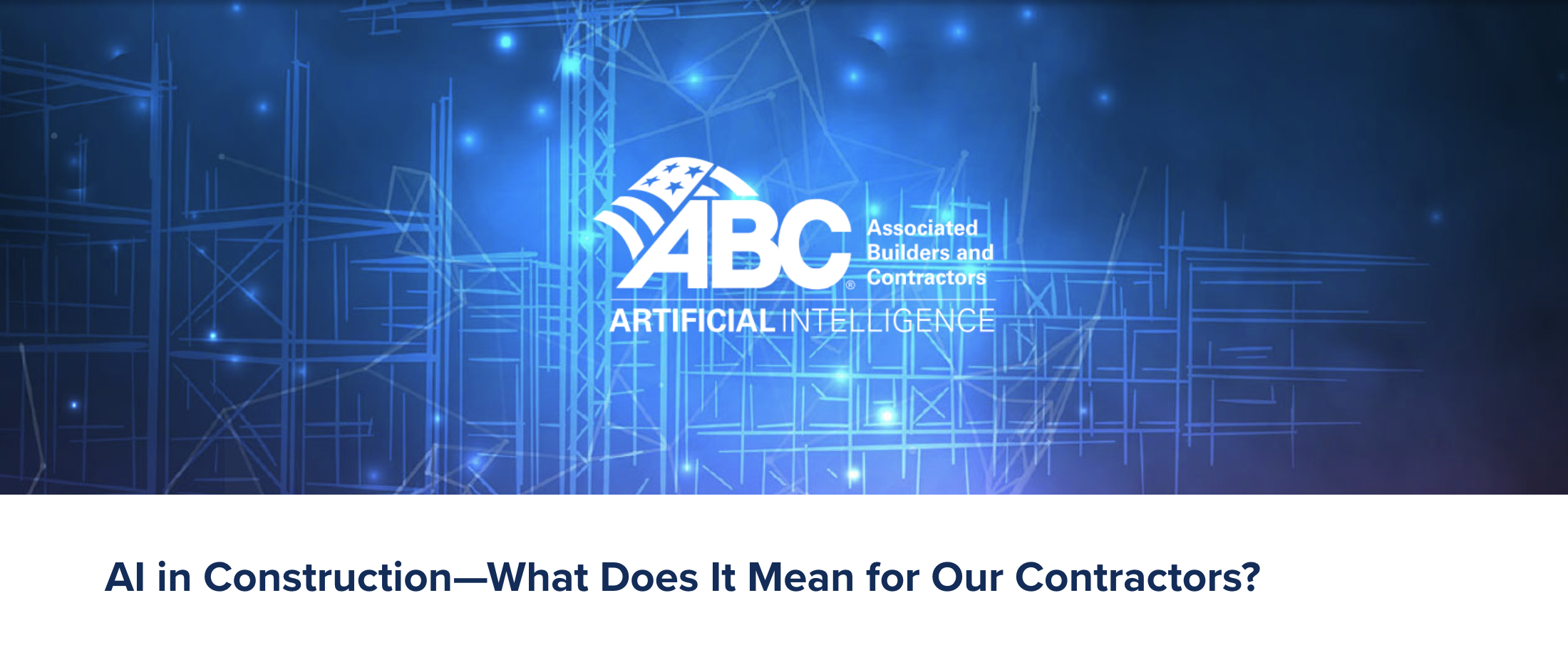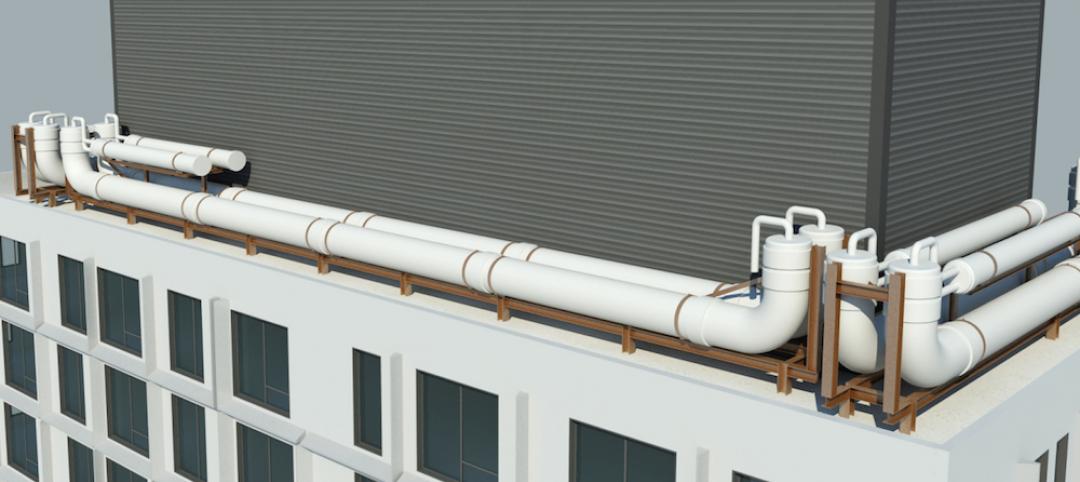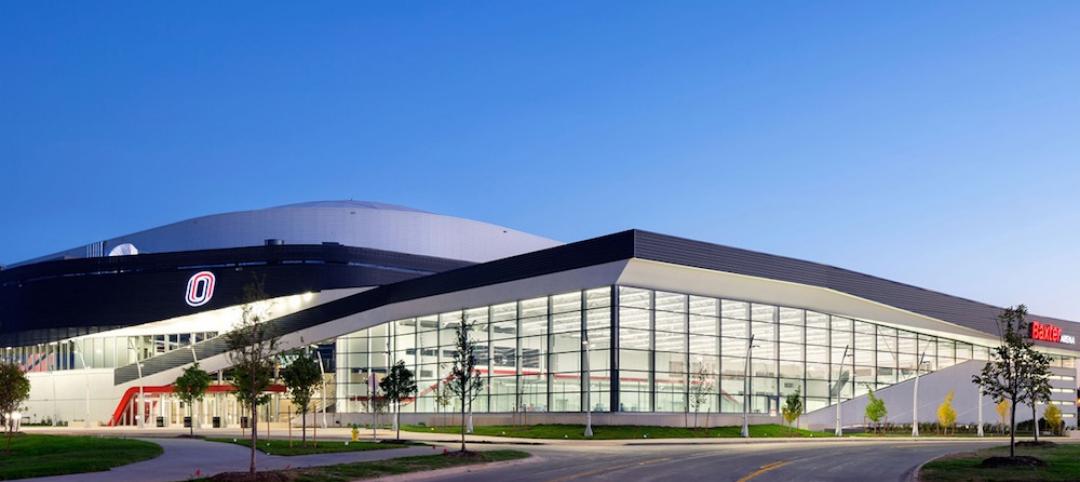Associated Builders and Contractors has released an artificial intelligence (AI) technology guide for the U.S. construction industry. AI in Construction — What Does It Mean for Our Contractors? outlines definitions, construction use cases, and considerations for the implementation of AI in construction.
“The purpose of the guide is to provide a level of knowledge to ensure contractors can be active participants in the construction AI conversation,” according to Associated Builders and Contractors.
The guide describes uses of AI during the construction project lifecycle, including preconstruction, construction, and building maintenance. It also provides definitions of terms such as deep learning and predictive AI, as well as best practices in drafting office AI policies.
“The possibilities of AI technology may sound endless, but we must first educate ourselves on the basics, and this resource is a starting point to understand AI and its potential impact on the construction industry,” said Patrick Scarpati, ABC Director of Construction Technology and Innovation. “The industry has immense opportunities to evaluate how we can better deliver projects, and we can lean on AI in achieving essential goals like upskilling, workforce development, knowledge transfer, supply chain optimization, enhanced safety design and planning, and much more.”
Use cases for AI in construction
The guide offers more than 20 uses cases and project management impacts across preconstruction, construction, and building maintenance, including:
Predictive Analytics: Analyze historical project data and current conditions to optimize construction schedules, resource allocation and task sequencing.
Supply Chain: Throughout the procurement process for self-performing contractors, artificial intelligence will empower the purchasing team to quickly identify availability and best pricing within a certain region.
Contract Review: Empower legal teams to quickly identify critical risk factors in construction contracts
Computer Vision/Intelligent Site Monitoring: Increase safety and security on jobsites. Through machine learning, video footage is trained to detect things like the number of workers entering/exiting the jobsite, workers in proximity of heavy construction machinery and even safety violations, such as the lack of face protection while saw-cutting concrete
Energy Management: Analyze energy usage patterns and optimize HVAC systems to reduce energy consumption and overall costs
Predictive Maintenance: Through the expanded use of building automation and control networks, AI can predict when building equipment is likely to fail, allowing for a proactive response.
According to ABC, “This resource is meant to act as a starting point in your journey to understand AI and its potential impact on the construction industry. By reading through definitions, construction use cases and considerations, the reader should walk away with a level of knowledge to ensure they can actively participate in future conversations on AI in construction.”
Related Stories
AEC Tech | May 10, 2016
Thornton Tomasetti launches new tech company
TTWiiN initially features six products and will add more via its own incubator.
AEC Tech | May 9, 2016
Is the nation’s grand tech boom really an innovation funk?
Despite popular belief, the country is not in a great age of technological and digital innovation, at least when compared to the last great innovation era (1870-1970).
Big Data | May 5, 2016
Demand for data integration technologies for buildings is expected to soar over the next decade
A Navigant Research report takes a deeper dive to examine where demand will be strongest by region and building type.
BIM and Information Technology | May 2, 2016
How HDR used computational design tools to create Omaha's UNO Baxter Arena
Three years after writing a white paper about designing an arena for the University of Nebraska Omaha, HDR's Matt Goldsberry says it's time to cherry-pick the best problem-solving workflows.
Virtual Reality | Apr 29, 2016
NBBJ to develop virtual reality productivity platform
The Seattle design firm has partnered with Visual Vocal, a startup VR company.
Drones | Apr 25, 2016
The Tremco SkyBEAM UAV is the first to be approved by the FAA for nighttime commercial operation
The SkyBEAM UAV is used for identifying energy leaks, rooftop damage, deteriorating façades, and safety issues without requiring scaffolding or cranes.
AEC Tech | Apr 15, 2016
Should architects learn to code?
Even if learning to code does not personally interest you, the growing demand for having these capabilities in an architectural business cannot be overlooked, writes computational design expert Nathan Miller.
Building Tech | Apr 12, 2016
Should we be worried about a tech slowdown?
Is the U.S. in an innovative funk, or is this just the calm before the storm?
AEC Tech | Apr 12, 2016
Startup introduces PaperLight, an interactive projection screen for AEC pros
The device lets users edit sketches, plans, and images with a stylus or their fingers.
AEC Tech | Mar 31, 2016
Deep Learning + AI: How machines are becoming master problem solvers
Besides revolutionary changes to the world’s workforce, artificial intelligence could have a profound impact on the built environment and the AEC industry.

















